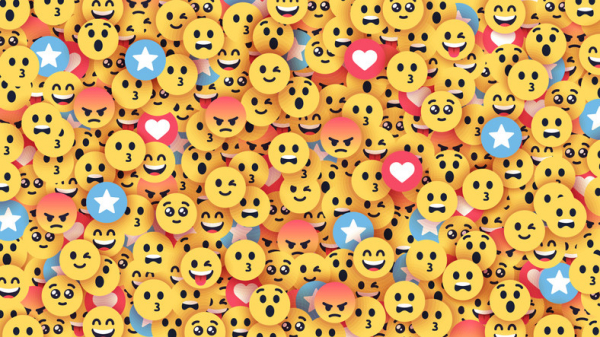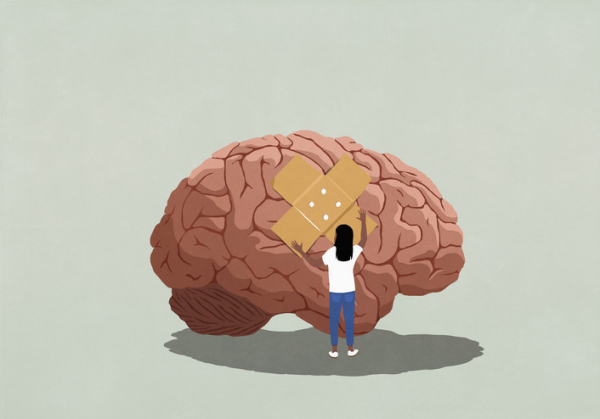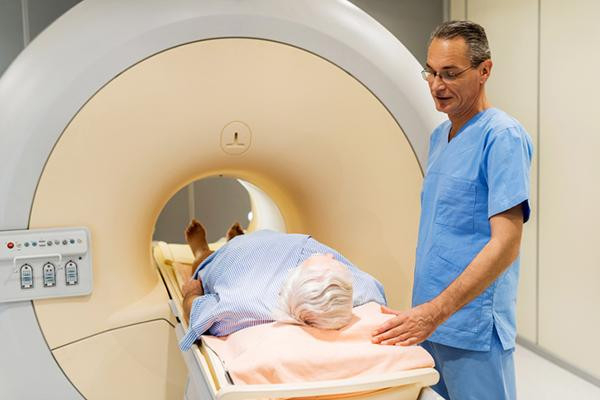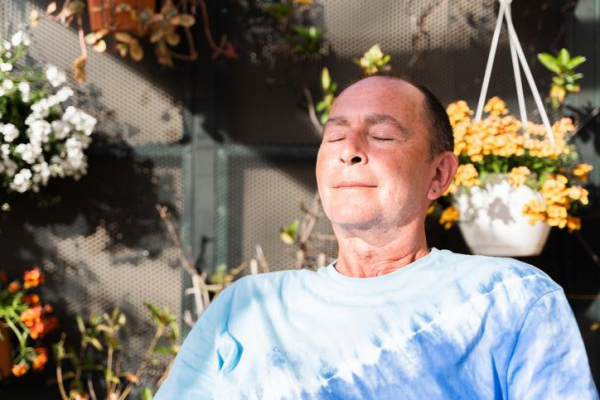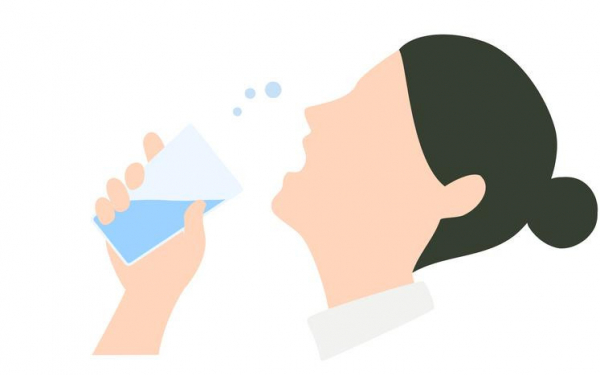Trouble staying focused and paying attention are two familiar symptoms of attention deficit hyperactivity disorder (ADHD), a common health issue among children and teens. When ADHD persists through early adulthood and on into middle age, it presents many of the same challenges it does in childhood: it’s hard to stay organized, start projects, stay on task, and meet deadlines. But now life is busier, and often expectations from work and family are even higher. Fortunately, there are lots of strategies that can help you navigate this time in your life. Staying organized Organizational tools are a must for people with…
-
-
If you’ve ever tried to lose excess weight, you’ve probably gotten this advice: drink more water. Or perhaps it was more specific: drink a full glass of water before each meal. The second suggestion seems like a reasonable idea, right? If you fill your stomach with water before eating, you’ll feel fuller and stop eating sooner. But did that work for you? Would drinking more water throughout the day work? Why do people say drinking water can help with weight loss — and what does the evidence show? Stretching nerves, burning calories, and thirst versus hunger Three top theories are:…
-
Don’t worry. It’s good advice if you can take it. Of course that’s not always easy, especially for health concerns. The truth is: it’s impossible (and ill-advised) to never worry about your health. But are you worrying about the right things? Let’s compare a sampling of common worries to the most common conditions that actually shorten lives. Then we can think about preventing the biggest health threats. Dangerous but rare health threats The comedian John Mulaney says the cartoons he watched as a child gave him the impression that quicksand, anvils falling from the sky, and lit sticks of dynamite…
-
Concussion is one of the most common injuries to the brain, affecting about two million children and teens every year. It is a particular kind of injury that happens when a blow to the head or somewhere else on the body makes the brain move back and forth within the skull. It’s possible to get a concussion after what might seem like a minor injury, like a forceful push from behind, or a collision between two players in a football or soccer game. What are the signs and symptoms of concussion? Because the injury may not seem that significant from…
-
Not so long ago, a friend texted me from a coffee shop. He said, "I can't believe it. I'm the only one here without a tattoo!" That might not seem surprising: a quick glance around practically anywhere people gather shows that tattoos are widely popular. Nearly one-third of adults in the US have a tattoo, according to a Pew Research Center survey, including more than half of women ages 18 to 49. These numbers have increased dramatically over the last 20 years: around 21% of US adults in 2012 and 16% of adults in 2003 reported having at least one…
-
Abnormal results on a prostate-specific antigen (PSA) screening test for cancer are typically followed by a systematic biopsy. During that procedure, doctors use a long needle to extract roughly a dozen samples from the prostate while looking at the gland on an ultrasound machine. Those samples can then be checked for cancer under a microscope. Limitations and concerns But systematic biopsies can be problematic. A major concern is that they overdiagnose low-grade, slow-growing tumors that might never become life-threatening, thereby leading to unnecessary treatments. Researchers are seeking alternatives to the systematic biopsy in men flagged by PSA screening. One option…
-
If you suffer from the throbbing, intense pain set off by migraine headaches, you may well wonder which medicines are most likely to offer relief. A recent study suggests a class of drugs called triptans are the most helpful option, with one particular drug rising to the top. The study drew on real-world data gleaned from more than three million entries on My Migraine Buddy, a free smartphone app. The app lets users track their migraine attacks and rate the helpfulness of any medications they take. Dr. Elizabeth Loder, professor of neurology at Harvard Medical School and chief of the…
-
For neuroscientist Sara Lazar, a form of meditation called open awareness is as fundamental to her day as breathing. “I just become aware that I am aware, with no particular thing that I focus on,” explains Lazar, an associate researcher in the psychiatry department at Massachusetts General Hospital and assistant professor of psychology at Harvard Medical School. “This sort of practice helps me become more aware of the subtle thoughts and emotions that briefly flit by, that we usually ignore but are quite useful to tune into.” But meditation doesn’t just change your perspective in the moment. Some studies show…
-
Recently, a friend asked me about tonsil stones. He has sore throats several times a year, which are instantly relieved by gargling to remove them. When I told him I thought tonsil stones were pretty rare, he asked: “Are you sure about that? My ear, nose, and throat doctor says they’re common as rocks.” (Get it? stones? rocks?) It turns out, my friend and his doctor are on to something. Tonsil stones are surprisingly common and often quite annoying. Here’s what to know and do. What are tonsil stones? Tonsil stones (medical term: tonsilloliths) are small white or yellow deposits…
-
It’s easy to say you simply don’t have time to be mindful. With so much going on in daily life, who has time to stop and be present? But everyone has at least 10 minutes to spare to practice mindfulness. The point of these brief, daily reflections is to help you tap into calmness whenever life gets too hairy. Practicing everyday mindfulness can also improve your memory and concentration skills and help you feel less distracted and better able to manage stress . And mindfulness tools have been successfully incorporated into treatments for anxiety and depression. There is more than…


